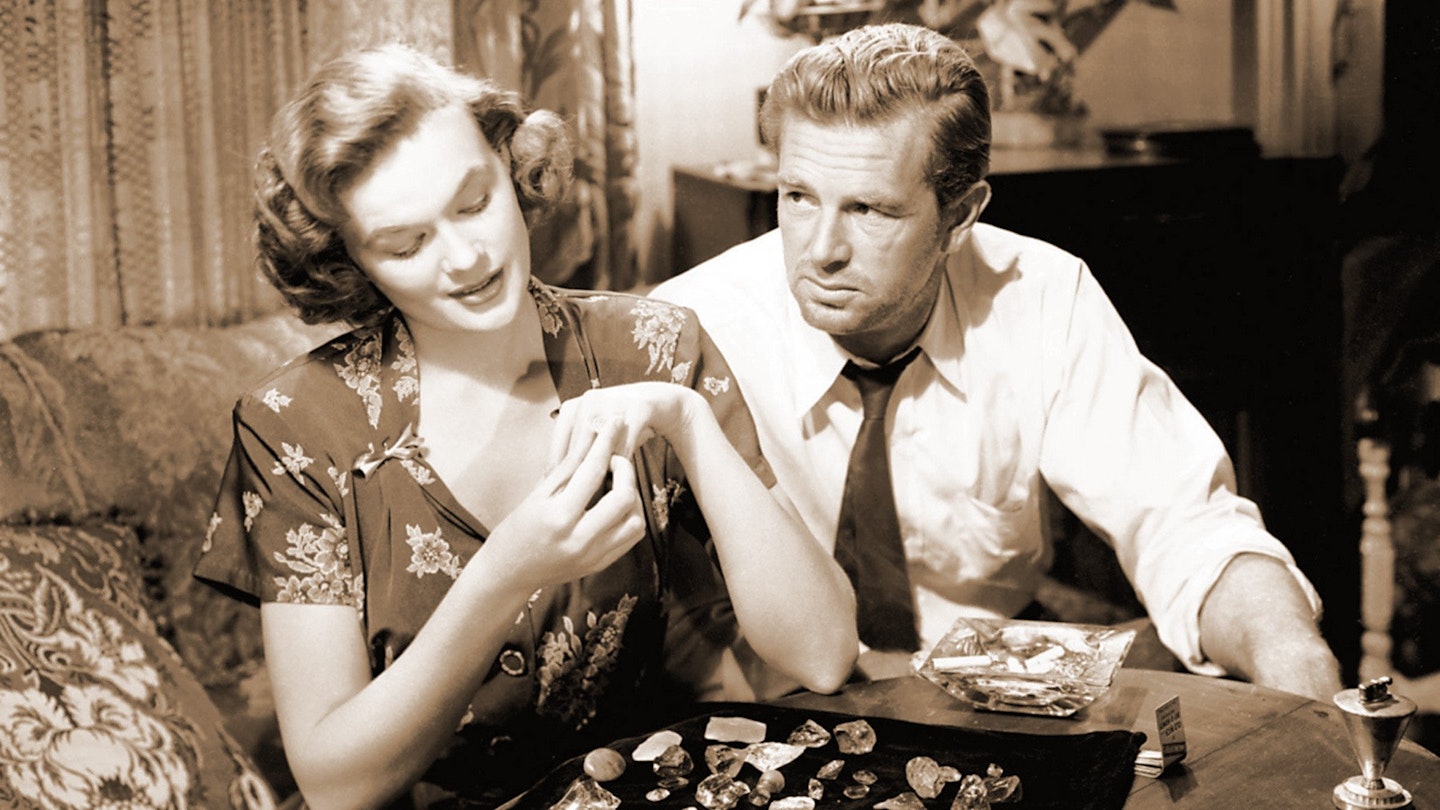John Huston is widely credited with bringing film noir to American screens with The Maltese Falcon in 1941. In that same year, he adapted W.R. Burnett's pulp novel High Sierra as a vehicle for Humphrey Bogart and he returned to the same author (who had also helped script Little Caesar and Scarface) for this prototype heist movie.
Co-scripting with Ben Maddow, Huston achieved a tangible sense of postwar anxiety and urban grit by borrowing from both the noir tradition and the voguish brand of ultra-realist problem picture exemplified by the 1949 race drama Intruder in the Dust (which Maddow had adapted to considerable acclaim from William Faulkner's novel).
Yet while the settings and dialogue were abrasively authentic, Huston couldn't resist empathising with the various losers against whom fate was about to conspire. Dix Handley (Hayden) is portrayed as a big lug who wants to buy back his father's Kentucky horse ranch; cat-loving getaway driver Gus Ninissi is a hunchback; while cracksman Louis Ciavelli (Caruso) has a family to feed. Similarly, the crooks' women - Hayden's girlfriend (Hagen), Calhern's wife (Tree) and mistress (Monroe) and Caruso's spouse (Celli) - are anything but the usual femmes fatale.
Thus, the law-breakers are presented as anti-heroes rather than villains and their crime is considered more an act of desperation than greed. Yet once Doc's plan begins to fall apart, there proves to be little honour among the thieves and their cameraderies turns out to be as brittle as the morality of the cops set to watch over this hopelessly corrupted society.
A seminal influence on crime pictures to this day, The Asphalt Jungle has been remade three times (but never well), as a Western (The Badlanders, 1950), a caper (Cairo, 1963) and a blaxploitation thriller (Cool Breeze, 1972).
